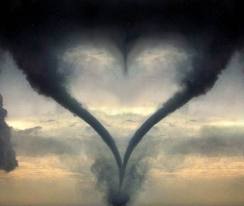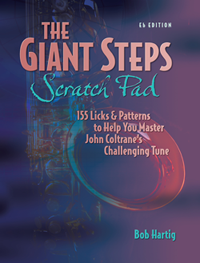Last night’s rehearsal for our June 11 concert at the Buttermilk Jamboree with Ed Englerth, Alan Dunst, and Don Cheeseman was much more than a shared creative time with three of my favorite musical droogs. Life has been pretty intense lately–financial pressures, Mom recovering from a knee replacement, Lisa struggling with what appears to be a ruptured bicep, physical concerns of my own–and I’d be lying to say that I’ve born it all with a smile on my face. I haven’t. I’ve felt weary, discouraged, and depressed. So reconnecting with the band and working on Ed’s music gave me a badly needed release. I needed to just forget about the rest of life for a while and play my horn with some friends with whom I’ve shared a love of music for many years now under the auspices of Ed’s songwriting.
Speaking of which, the guy just keeps getting better and better, and so does the band. Ed’s upcoming CD may be his best effort yet, which is saying a hunk considering the benchmark set by his last CD, Restless Ghost. I hope to finally hear the final master tonight, and then I’ll know for sure which album is my favorite. What’s certain is that we pulled out a few extra stops in the studio with this project, including the use of multiple sax tracks to create the effect of an entire sax section. Also, in an unprecedented departure from my die-hard devotion to the alto sax, I played my soprano on a couple tunes. I may have even played it in tune; I’ll find out soon enough.
But I was talking about how much I needed to tune up, blow some notes, and forget about the rest of life for while. Music is as much a part of life as anything else. In my case, it’s a very good part and a very large part, and I needed to be reminded of that. When I forget what “normal” looks like, nights like last night help me draw back to the center of who God created me to be and reclaim some parts of myself that I sometimes lose track of.
It seems that I wasn’t the only one. Don and his wife have been going through a difficult, hugely demanding time with their new baby son, who has Down Syndrome and has struggled nonstop with acute allergies. Ed has been dealing with the advancing, age-related health problems of his beloved mother- and father-in-law, who reside with him and his wife, Panda. Alan was the only guy who didn’t seem to have heavy stuff going on in his life at the moment, or if he did, chose not to share. But he’s been through his own fires. We all have, and last night at least three of us were feeling the heat.
So it seemed that the right thing to do, after we had finished practicing, was spend some time talking and praying together. It’s so easy to just pack up the instruments and head home without ever thinking to pray. But there’s power and healing in the honesty, faith, earnestness, and hope of collectively conversing with our heavenly Father. I would go so far as to say that a band of Christian musicians that bypasses the opportunity to get real with each other and with the Lord is missing what may well be the most vital part of their time together, more important even than the music (though that’s important).
Real is what the four of us got last night, and it was good. I left feeling not only connected with God and with the guys, but also reconnected with myself. Something about standing humbly and openly in the presence of Jesus has a way of doing that, of reminding me who and Whose I really am. The gloom lifts, the lies and warping influence of the world’s nonstop millrace lose their grip, and I discover once again that quiet place where I can hear God speak. It is a place of peace and a place of power. When David spoke in Psalm 23 of God as the one who restored his soul, I understand what he meant.
I think, I hope, that all of us last night discovered the potential of prayer and our need to incorporate it into our rehearsals more often. More even than the songs we play and the creative passion we share, the Spirit of Jesus Christ draws us together, and it’s the thing that can take our band to the next level–possibly the next musical level, but more certainly the next level of what God has in mind for us.
Lord, I thank you for last night’s blessing of connecting with you and with my brothers Ed, Don, and Alan through the gift of heartfelt, down-to-earth, unpretentious prayer. Please look after each of my friends. You know their needs and you know mine. Care for us and our loved ones as a shepherd cares for the sheep of his pasture, for that is who you are: The Good Shepherd. Give us to hear and treasure your voice–for in it, and it alone, is life.


